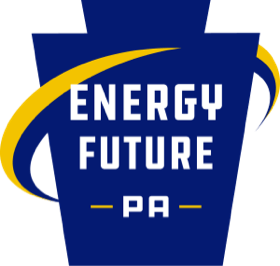SEPTA shows how hydrogen hubs can power local economies
By Kate Harper
Earlier this month, we learned Pennsylvania will benefit from not one but two of the seven hydrogen hub projects selected for award negotiations across the nation.
This hydrogen hub funding was made available in the bipartisan Infrastructure Investment and Jobs Act and aims to support development of regional networks for the production and use of American-made clean hydrogen.
The announcement was rightly hailed as a boon to the regional economy for both projects – the Mid-Atlantic Clean Hydrogen Hub (MACH2) project in eastern Pennsylvania, Delaware, and New Jersey; and the Appalachian Regional Clean Hydrogen Hub (ARCH2) project in western Pennsylvania, West Virginia, Kentucky, and Ohio.
But it’s clear that we have a lot of work to do to show what these massive federal investments will mean for local communities – areas like Chester County, whose Chamber of Business & Industry recently hosted a virtual roundtable discussion on these very issues. I’m grateful to have been asked to participate, and I believe the discussion we had was productive and helpful for the business community and other stakeholders throughout southeastern Pennsylvania.
One of the strongest voices on the panel was that of Tyler Ladd, director of power engineering at Southeastern Pennsylvania Transportation Authority, or SEPTA. Tyler described how SEPTA has already begun exploring the use of hydrogen fuel cells for its bus fleet, and how the hub will only accelerate that transition. Hydrogen fuel cell buses offer similar range and performance as diesel-hybrid buses with quieter operation, lower maintenance costs, and less than half the lifecycle greenhouse gas emissions.
The agency already has 10 hydrogen buses ordered and scheduled to hit the road next year. The buses will be made in the U.S. and will be a key part of SEPTA’s goal of transitioning to a zero-emission bus fleet.
It’s hard to overstate the impact of SEPTA’s leadership in the transition to a decarbonized energy economy. SEPTA is Pennsylvania’s largest public transportation system and the sixth largest in the nation. Its investment in hydrogen fuel cell technology shows a clear, tangible and important way in which the development of regional hydrogen hubs will benefit local communities, regional economies, and the entire Commonwealth of Pennsylvania.
We need businesses, institutions, and organizations across the commonwealth to follow SEPTA’s lead. The transition to a decarbonized energy future depends on a broad coalition of stakeholders joining in this effort.
That’s what Energy Future PA is all about. We’re a nonpartisan coalition that believes in a people-first energy strategy that preserves and expands jobs, powers the economy and strengthens communities. Join us at EnergyFuturePA.org.
Kate Harper is co-chair of Energy Future PA, a nonpartisan coalition focused on securing Pennsylvania’s leadership in a decarbonized energy economy. Harper is a former member of the Pennsylvania House of Representatives, representing parts of Montgomery County.
Share post:
